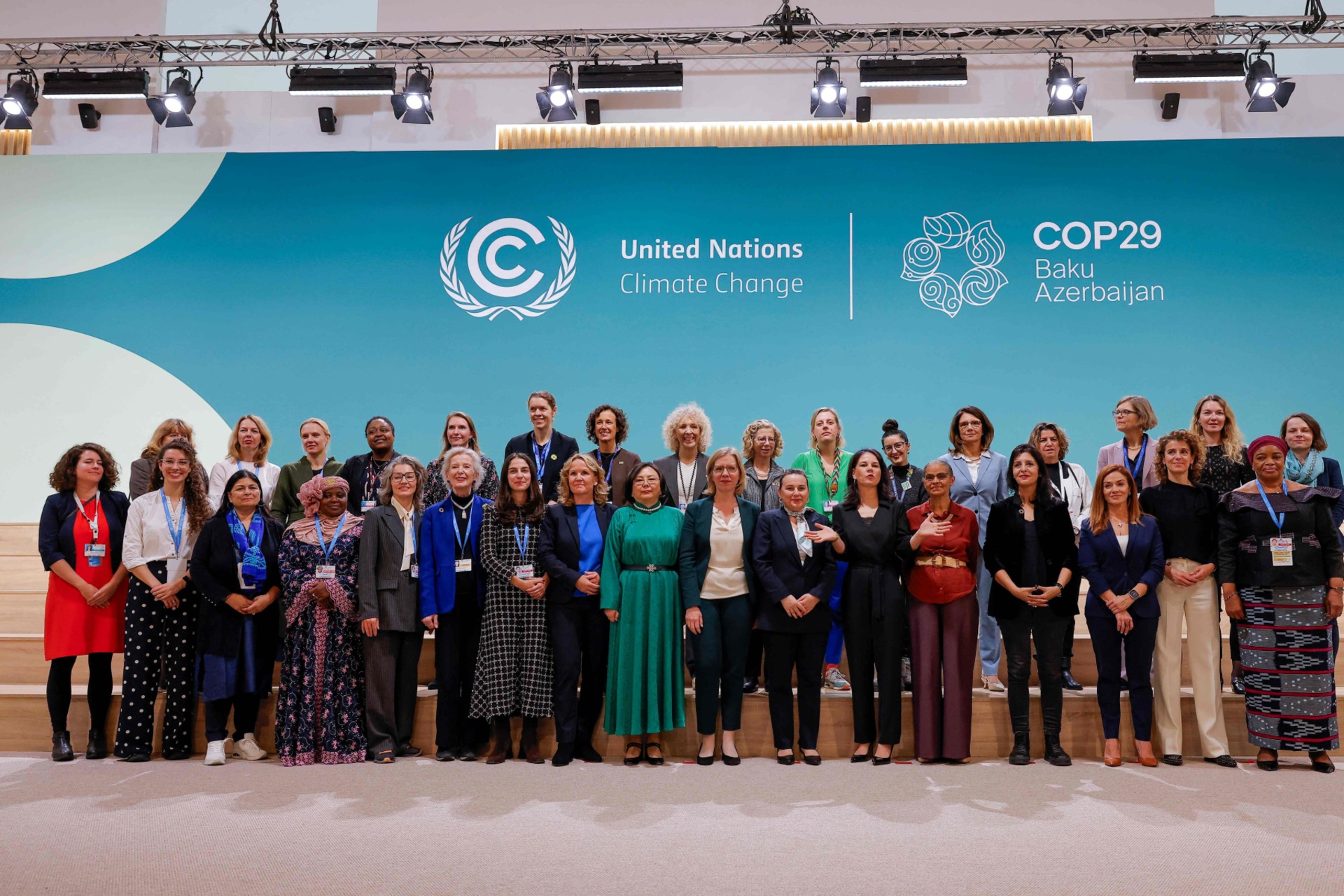Women This Week: Deadlock at COP29 to Update UN Action Plan on Gender and Climate
Welcome to “Women Around the World: This Week,” a series that highlights noteworthy news related to women and U.S. foreign policy. This week’s post covers November 16 to November 22.

Opposition to Use of “Gender” in Text
Efforts to ensure that countries are more responsive to the nexus of gender and climate change have stalled at this year’s COP29 climate summit in Azerbaijan. The Lima Work Programme on Gender (LWPG) was originally established in 2014 to advance a gender-responsive approach to climate policy and action. In a proposed update to the LWPG, African and European Union countries included a line recognizing the different experiences that climate change may have based on “gender, sex, age and race.” However, this effort was derailed by the Vatican, Egypt, Iran, Russia, and Saudi Arabia, who demanded that the term “gender” be removed over concerns that the term could be construed to include transgender and gay women—identities that are criminalized in a number of national laws. Aid charities expressed surprise as the word has been used in official documentation for the last decade. “The Latin American countries are working very hard – we will not allow the gender programme to drop and allow human rights to be dropped,” commented Colombia’s environment minister and lead negotiator, Susana Muhamad, to BBC News. A failure to include a reference to gender in the document will undermine efforts to ensure that populations disproportionally impacted by climate change receive assistance.
Record Number of Women Elected to Sri Lankan Parliament
A record number of women will soon join the Sri Lankan parliament following elections held on November 14. Twenty-one women were elected this year as members of parliament (MPs), surpassing the previous record of thirteen. For the first time, women will hold more than 10 percent of seats in the Parliament. Of the incoming cohort, nineteen women belong to the National People’s Power (NPP), and nine MPs are lawyers. Notably, Harini Amarasuriya has been reappointed as Sri Lanka’s prime minister under President Anura Kumara Dissanayake’s administration, making her the country’s third female prime minister. The first women from Sri Lanka’s tea plantations were also elected. Of the results, political scientists Nalinda Jayawardena and Manilal Sugathadas said, “there is established evidence that women’s leadership in political decision-making processes improves the well-being of rural communities as revealed in research on panchayats (local councils) in India.”
Argentina Rejects Protections Against Online Gender-Based Violence
Argentina was the only country to vote against a draft resolution aimed at bolstering protections for women and girls against online gender-based violence during a recent UN General Assembly session. A majority of countries voted in favor of the legislation. Thirteen countries abstained, including Iran, Russia, Nicaragua, and North Korea. The resolution highlights the commitment outlined in the 2030 Agenda for Sustainable Development to reach gender equality and outlined a policy approach that is “comprehensive, coordinated, interdisciplinary,” and includes “services, programs and responses for all victims and survivors of all forms of violence, including sexual harassment online and offline, that are adequately resourced.” Argentinian President Javier Milei has been a vocal critic of the UN, calling the 2030 Sustainable Development Goals an “ideological agenda. Milei said he objected to this specific UN resolution because it would restrict freedom of expression through ambiguous terms including “hate speech,” “misinformation,” and “disinformation.”
Uma Fox is the intern for the Women and Foreign Policy Program and contributed to the research for this blog.